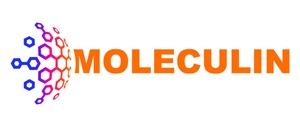- Glioblastoma is the most aggressive malignant primary brain tumor with serious unmet medical need
HOUSTON, Sept. 6, 2022 /PRNewswire/ -- Moleculin Biotech, Inc., (Nasdaq: MBRX) ("Moleculin" or the "Company"), a clinical stage pharmaceutical company with a broad portfolio of drug candidates targeting highly resistant tumors and viruses, today announced that the U.S. Food and Drug Administration ("FDA") has granted Orphan Drug Designation of WP1122 for the treatment of Glioblastoma Multiforme ("GBM").
"The receipt of Orphan Drug Designation represents an important milestone for our promising WP1122 development program," commented Walter Klemp, Chairman and Chief Executive Officer of Moleculin. "Given the progress of our Phase 1 clinical trial in healthy volunteers, the strong preclinical data supporting GBM as one of many potential indications and the recent clearance by the FDA of IND status for WP1122 in GBM, we believe this designation further supports the potential of WP1122 and is another step forward in further validating our deep pipeline."
WP1122 was developed as a 2-DG prodrug to provide a more favorable pharmacological profile and was found to have greater potency than 2-DG alone in preclinical models where tumor cells require higher glycolytic activity than normal cells. Based on preclinical data indicating the potential for WP1122 as a treatment for GBM, Moleculin received Investigational New Drug status and is evaluating opportunities for collaboration in clinical development.
GBM is the most aggressive malignant primary brain tumor and remains as an incurable tumor with a median survival of only 15 months.1 It is the most common malignant primary brain tumor making up 54% of all gliomas and 16% of all primary brain tumors,2 and despite advancements, survival rates for patients with GBM have shown no notable improvement in population statistics in the last three decades.3 The average annual age-adjusted incidence rate of GBM is 3.19 per 100,000 persons in the United States.
The FDA grants Orphan Drug Designation to drugs and biologics intended for the treatment, diagnosis or prevention of rare diseases or conditions affecting fewer than 200,000 people in the United States. Orphan Drug Designation provides Moleculin certain benefits, including financial incentives to support clinical development and the potential for up to seven years of market exclusivity for the drug for the designated orphan indication in the U.S. if the drug is ultimately approved for its designated indication.
About Moleculin Biotech, Inc.
Moleculin Biotech, Inc. is a clinical stage pharmaceutical company focused on the development of a broad portfolio of drug candidates for the treatment of highly resistant tumors and viruses. The Company's lead program, Annamycin, is a next-generation anthracycline designed to avoid multidrug resistance mechanisms with little to no cardiotoxicity. Annamycin is currently in development for the treatment of relapsed or refractory acute myeloid leukemia (AML) and soft tissue sarcoma (STS) lung metastases.
Additionally, the Company is developing WP1066, an Immune/Transcription Modulator designed to be capable of inhibiting p-STAT3 and other oncogenic transcription factors while also stimulating a natural immune response, targeting brain tumors, pancreatic and other cancers; and WP1220, an analog to WP1066, for the topical treatment of cutaneous T-cell lymphoma. Moleculin is also engaged in the development of a portfolio of antimetabolites, including WP1122, for the potential treatment of COVID-19 and other viruses, as well as cancer indications including brain tumors, pancreatic and other cancers.
For more information about the Company, please visit www.moleculin.com and connect on Twitter, LinkedIn and Facebook.
Forward-Looking Statements
Some of the statements in this release are forward-looking statements within the meaning of Section 27A of the Securities Act of 1933, Section 21E of the Securities Exchange Act of 1934 and the Private Securities Litigation Reform Act of 1995, which involve risks and uncertainties. Forward-looking statements in this press release include, without limitation, the ability for WP1122 to be shown safe and effective in humans. Although Moleculin believes that the expectations reflected in such forward-looking statements are reasonable as of the date made, expectations may prove to have been materially different from the results expressed or implied by such forward-looking statements. Moleculin has attempted to identify forward-looking statements by terminology including 'believes,' 'estimates,' 'anticipates,' 'expects,' 'plans,' 'projects,' 'intends,' 'potential,' 'may,' 'could,' 'might,' 'will,' 'should,' 'approximately' or other words that convey uncertainty of future events or outcomes to identify these forward-looking statements. These statements are only predictions and involve known and unknown risks, uncertainties, and other factors, including those discussed under Item 1A. "Risk Factors" in our most recently filed Form 10-K filed with the Securities and Exchange Commission ("SEC") and updated from time to time in our Form 10-Q filings and in our other public filings with the SEC. Any forward-looking statements contained in this release speak only as of its date. We undertake no obligation to update any forward-looking statements contained in this release to reflect events or circumstances occurring after its date or to reflect the occurrence of unanticipated events.
Investor Contact:
JTC Team, LLC
Jenene Thomas
(833) 475-8247
[email protected]
1: Koshy M, Villano JL, Dolecek TA, Howard A, Mahmood U, Chmura SJ, et al. Improved survival time trends of glioblastoma using the SEER 17 population-based registries. J Neuro Oncol. 2012;107(1):207-12
2: Ostrom QT, Gittleman H, Farah P, Ondracek A, Chen Y, Wolinsky Y, et al. CBTRUS statistical report: Primary brain and central nervous system tumors diagnosed in the United States in 2006-2010. Neuro Oncol. 2013;15 Suppl:2ii-56.
3: De Vleeschouwer S, editor. Brisbane (AU): Codon Publications; 2017 Sep 27.
4: Thakkar J, Dolecek TA, Horbinski C, Ostrom QT, Lightner DD, Barnholtz-Sloan JS, et al. Epidemiologic and molecular prognostic review of glioblastoma. Cancer Epidemiol. Biomarkers Rev. 2014;23(10):1985-96.
SOURCE Moleculin Biotech, Inc.

WANT YOUR COMPANY'S NEWS FEATURED ON PRNEWSWIRE.COM?
Newsrooms &
Influencers
Digital Media
Outlets
Journalists
Opted In





Share this article